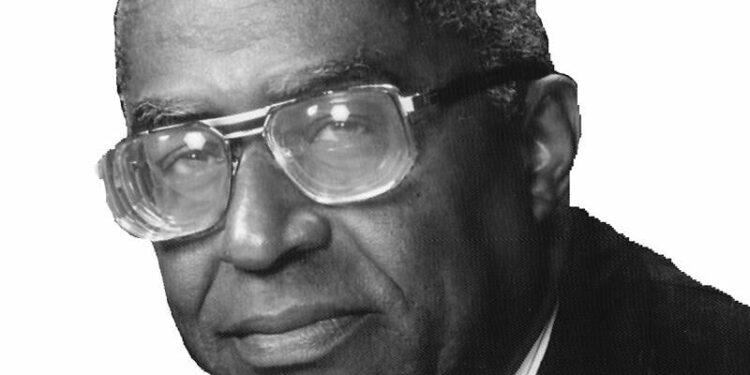One of the most inspirational facets of a society’s tumultuous voyage toward independence and nationhood is its unenviable pride in immortalising its national heroes: lifting up those whose monumentally exceptional endeavours have been dedicated in service to their fellowmen.
Frequently conferred posthumously, the honour is supremely lofty: distinct from any other, howsoever and by whomsoever bestowed. Nor is it earned by virtue of any position or office held. Rather, it is exemplified by the excruciating pain and suffering to which subjected and the self-sacrifices made in pursuit of the common good.
Accordingly, it should be magnanimously bestowed, preferably by way of a special resolution adopted by no less than a three-fifth’s majority of a joint session of Parliament and proclaimed under the seal of the President of the Republic.
Born out of extreme exceptionalism, the qualifying criteria may differ from nation to nation, but upon one provision we should all insist: that the distinction be unconditionally reserved for the handful who have gone literally above and beyond the limits of what can be envisioned in making life better for the benefit of Trinidad and Tobago and, ultimately, the world at large.
That after 62 years of Independence Trinidad and Tobago is yet to name its official national heroes is patently disappointing. The shortcoming cheats the citizenry, especially our young people, of the highest ideals toward which to aspire, not only in maximising their fullest potential, but in contributing purposefully and resolutely to T&T’s journey toward nationhood.
Aside from the others, of the four foremost Caricom nations, only two have so far officially named their national heroes: Jamaica and Barbados. Both Trinidad and Tobago and Guyana have been lagging.
Jamaica has so far distinguished seven: Sir Alexander Bustamante, exemplary trade union leader and first Prime Minister; George Gordon, a martyred advocate for the poverty-stricken Negro peasants; Marcus Mosiah Garvey who selflessly fought for self-government for black countries worldwide, and is recognised as the first black individual to awaken the dignity of the black man in Jamaica, North America and Africa; Nanny of the Maroons, well-known as an outstanding military leader and a symbol of unity and strength for her people during their time of crisis.
Norman Manley, a brilliant scholar, Chief Minister and later Premier, led Jamaica to internal self-government in 1959 and independence in 1962. Paul Bogle, famous for revolting against authority, is recorded to have commanded several rebellions. In 1865, he marched upon a Town Council in session, raided a police station for arms and set the Court House on fire. He also died a martyr.
Samuel Sharpe, yet another martyr, was the main instigator of the Slave Rebellion, as a consequence of which he was executed in the Montego Bay marketplace in May 1832. It is further recorded that this was the uprising that resulted in the abolition of slavery in Jamaica.
The official National Heroes of Barbados number 11: nine men and two women: honourably addressed as the Right Excellent, they are Bussa, the freedom fighter; Sarah Ann Gill, the heroine of Methodism and religious freedom; Samuel Jackman Prescod, the defender of human rights; Charles O’Neal, the social transformer; Sir Grantley Adams, the solitary Prime Minister of the aborted West Indies Federation and first Prime Minister of Barbados; Clement Osbourne Payne, trade union pioneer; Sir Hugh Springer, dedicated to making a difference; Sir Frank Leslie Walcott, a man of and for the people; Errol Walton Barrow, the father of Barbados’s Independence; Sir Garfield Sobers, cricket’s greatest all-rounder; and Robyn Rihanna Fenty, acknowledged for her creativity, discipline and extraordinary commitment to Barbados.
Justifiably, the naming of national heroes is no routine undertaking. So exceptionally anointed and exceedingly highly regarded is the honour that it is rarely and ultra-diligently conferred.
For example, in Jamaica, it stands at the pinnacle: first in the order of precedence among the Orders of six Societies of Honour, namely: The Order of National Hero, the Nation, of Excellence, of Merit, of Jamaica and The Order of Distinction, specific to the military.
It is noteworthy that, whereas in Trinidad and Tobago the highest distinction is that of The Order of Trinidad and Tobago, the like titled distinction, namely: The Order of Jamaica, is ranked fifth in order of precedence: a dilemma of diplomacy in observing hierarchical protocols in sensitive circumstances.
Interestingly, Barbados National Heroes Day is celebrated on April 28, the birthday of its first Prime Minister, Sir Grantley Adams. Their gallery of National Heroes is located in the museum of the Parliamentary Building where accounts on the significance of each hero’s individual contribution to the nation’s progress and development are integral to the experience.
Are there lessons to be learnt? When will T&T catch up?
• Author Roy Mitchell is a former special adviser and co-ordinator, National Tripartite Advisory Council (NTAC).
Source link : http://www.bing.com/news/apiclick.aspx?ref=FexRss&aid=&tid=66bd6bd2b3f64edbb6bf183da0f69cc1&url=https%3A%2F%2Ftrinidadexpress.com%2Fopinion%2Fcolumnists%2Fnaming-official-national-heroes-long-overdue%2Farticle_4cda5ba8-5a9d-11ef-8bb7-fba4432a0af1.html&c=8695072247902431694&mkt=en-us
Author :
Publish date : 2024-08-14 15:00:00
Copyright for syndicated content belongs to the linked Source.







